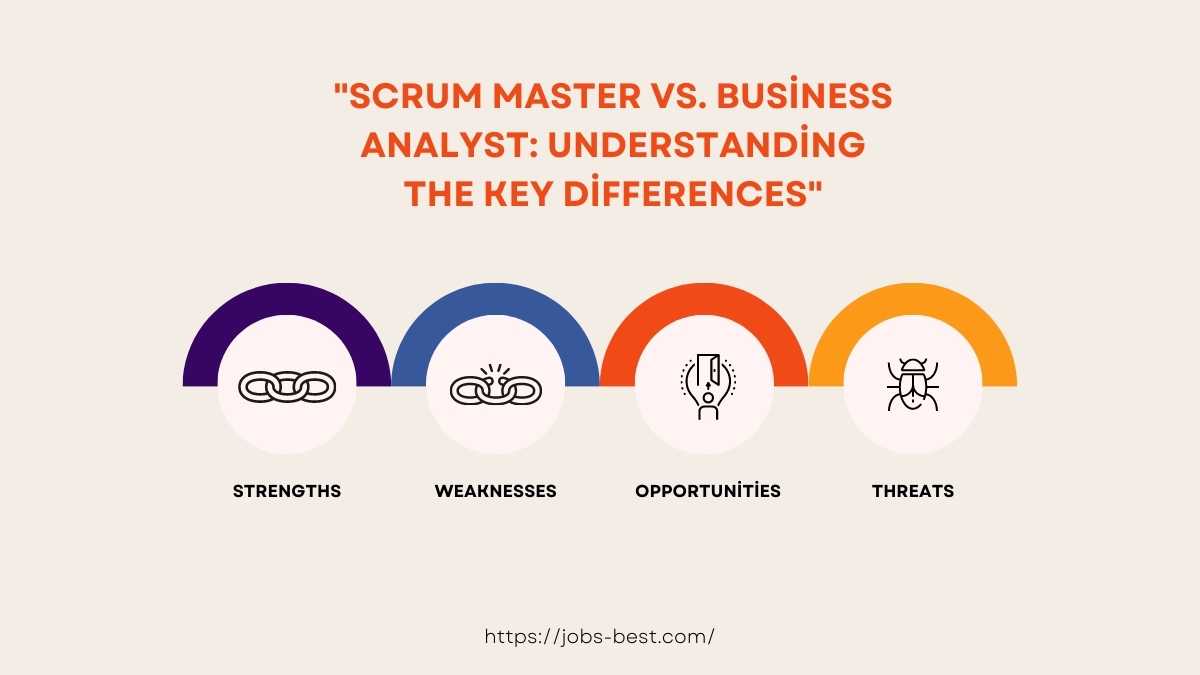Are you trying to decide between a career as a Scrum Master or a Business Analyst? Or perhaps you’re a project manager trying to understand the roles of these professionals on your team. Either way, it’s important to understand the key differences between Scrum Masters and Business Analysts.
What is a Scrum Master?
A Scrum Master is a facilitator for a development team that follows the Scrum framework. Scrum is a framework for agile software development, which emphasizes collaboration, flexibility, and the ability to rapidly adapt to change.
The Scrum Master is responsible for ensuring that the team follows the Scrum framework and principles. This includes facilitating Scrum ceremonies such as daily stand-ups, sprint planning, sprint demos, and retrospectives. The Scrum Master is also responsible for removing any obstacles that might prevent the team from meeting its commitments.
What is a Business Analyst?
A Business Analyst is a professional who works with an organization to identify and define the solutions that will help the business to achieve its goals. Business Analysts work with stakeholders to understand the needs and requirements of the business, and then communicate those needs to the development team.
The Business Analyst is responsible for gathering and analyzing data, creating process flows and diagrams, and working with the development team to design and implement solutions. They may also be responsible for testing and validating the solutions to ensure they meet the needs of the business.
Key Differences
While both Scrum Masters and Business Analysts play important roles on development teams, there are some key differences between the two roles:
- Focus: Scrum Masters focus on the process of development, while Business Analysts focus on the business needs and requirements.
- Responsibility: Scrum Masters are responsible for facilitating the Scrum process and removing obstacles for the team, while Business Analysts are responsible for gathering and analyzing business data and defining solutions.
- Skillset: Scrum Masters need strong facilitation and conflict resolution skills, while Business Analysts need strong analytical and communication skills.
Can a Scrum Master also be a Business Analyst?
Yes, it is possible for a professional to be both a Scrum Master and a Business Analyst. In fact, many professionals choose to pursue both roles as it allows them to have a deeper understanding of both the development process and the business needs of an organization.
Which role is more senior?
It’s difficult to say which role is more senior as it can vary depending on the organization and the specific project. In some cases, the Business Analyst role may be more senior due to the responsibility for defining business solutions. In other cases, the Scrum Master role may be more senior due to the responsibility for overseeing the development process.
Do Scrum Masters and Business Analysts work on the same projects?
Yes, Scrum Masters and Business Analysts often work on the same projects as both roles are crucial for the successful delivery of a project. The Scrum Master ensures that the development team is following the Scrum framework and principles, while the Business Analyst works with stakeholders to understand the business needs and defines the solutions to be implemented by the development team.
In conclusion, while both Scrum Masters and Business Analysts play important roles on development teams, they have different areas of focus and responsibility. Scrum Masters focus on the process of development and facilitate the Scrum framework, while Business Analysts focus on the business needs and requirements and define solutions to help the business achieve its goals.
